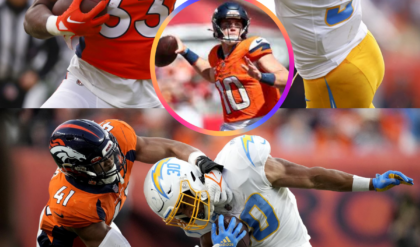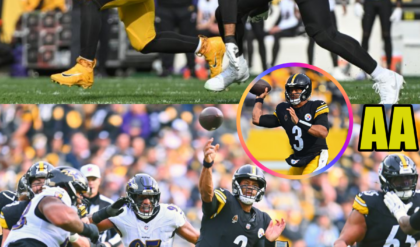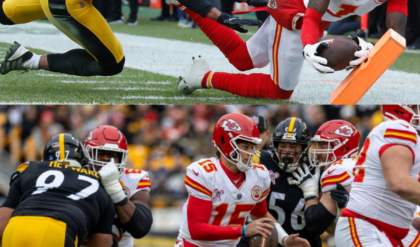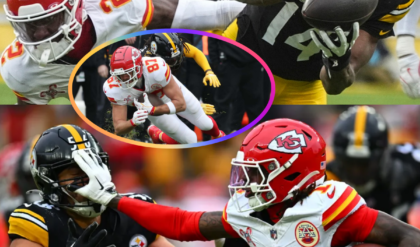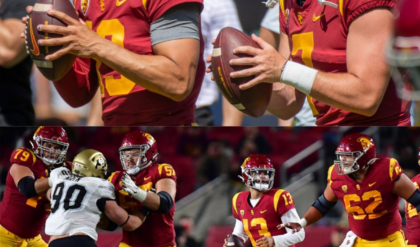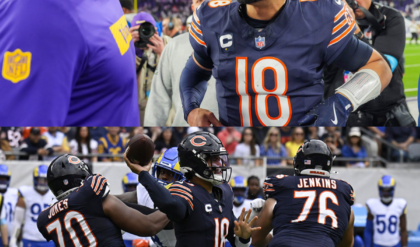SHOCKING video shows 49ers fans BARRED entry to game vs Cowboys over MAGA HAT! | HO

The recent controversy at Levi’s Stadium involving a family wearing “Make America Great Again” (MAGA) hats has sparked considerable debate, especially as it coincided with the high-profile San Francisco 49ers vs. Dallas Cowboys game. This incident, which unfolded as fans attempted to enter the stadium, sheds light on how politically charged symbols can impact fan experience and highlights the broader trend of political expression at sports events.
The situation began when a family wearing MAGA hats was reportedly denied entry into Levi’s Stadium by stadium security, prompting them to capture the exchange on video. This video later circulated widely online, illustrating the tense exchange and bringing attention to the stadium’s security protocols. In the video, security personnel allegedly told the family that they would not be allowed inside unless they either removed or disposed of the MAGA hat. The family argued that they were following stadium policies, as the stadium’s code of conduct prohibits only “offensive clothing” without specifying political attire.
The issue eventually drew a crowd of bystanders, some of whom spoke up in support of the family, questioning why the MAGA hats would be considered offensive. After an extended back-and-forth and missing part of the game, a stadium supervisor intervened and allowed the family entry, effectively overruling the initial security decision. The family later posted the footage on TikTok and social media, describing their frustration over the incident and asserting that they felt discriminated against due to their political beliefs.

The stadium’s code of conduct, like that of many sports venues, aims to maintain an inclusive and respectful environment by prohibiting explicitly offensive clothing. However, it doesn’t specify political attire, making it unclear why security initially viewed the MAGA hat as offensive. The decision to block the family’s entry, only to later reverse it, raises questions about how these policies are interpreted on the ground. It also suggests a possible inconsistency in enforcement, as political apparel is seen increasingly at sports events, and specific symbols can sometimes be viewed as contentious or provocative depending on the current social and political climate.
While Levi’s Stadium did ultimately allow the family to enter, the initial resistance they faced echoes similar issues that have surfaced across the U.S. at sports venues, concerts, and other public spaces. The situation further amplifies the discussion on whether certain political symbols, including those associated with the MAGA movement, should be treated differently than other types of expressions in the public sphere.
In recent years, political statements have found a platform in the sports world, whether through fans’ attire or players’ actions. The “Make America Great Again” slogan, in particular, has become an instantly recognizable symbol associated with former President Donald Trump and his supporters. In the past, MAGA apparel, hats especially, has sparked similar reactions in various public settings, where wearers report both support and opposition, depending on the region and the venue.
This incident at Levi’s Stadium coincides with the 2024 election season, a time when public expressions of political affiliation, like MAGA hats, are once again on the rise. As a symbol, the MAGA hat has become polarizing, often leading to assumptions about the wearer’s views on various social and political issues. Some fans feel encouraged to express their views more openly, while others argue that political symbols have no place in sports. The return of visible Trump support at games appears to be fueling stronger reactions, as seen in this case with Levi’s Stadium security.
Political expression isn’t limited to fans; athletes themselves are often seen making statements during games or in post-game interviews. For instance, 49ers defensive end Nick Bosa, known for his open political leanings, was seen wearing a MAGA hat after the game. This stirred additional discussions, especially after NBC temporarily took down a clip of him in the hat. Bosa’s actions are part of a broader trend where players are increasingly using their platform to make political or social statements.
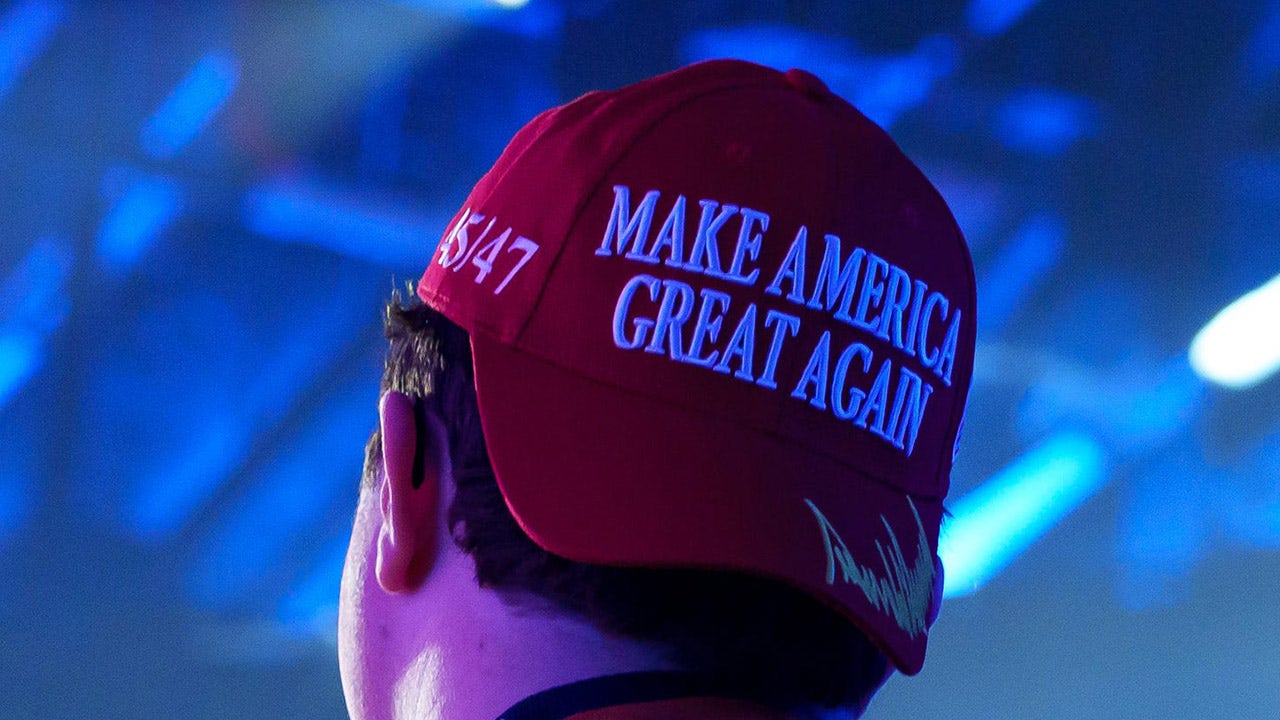
For fans, the intersection of politics and sports can create a divided environment. Supporters of athletes like Bosa appreciate the courage to express personal beliefs, while others feel that sports should remain an escape from political and social conflicts. Yet, as players are emboldened to share their views, it follows that fans might feel similarly inclined, leading to situations like that at Levi’s Stadium.
The incident at Levi’s Stadium taps into a larger concern among fans about potential discrimination based on political beliefs. This family’s experience is not isolated; many have reported challenges when attempting to bring politically themed apparel or signs into public venues. In some cases, fans wearing politically neutral but socially controversial statements have also faced scrutiny. As reports like this one continue to surface, some fans feel apprehensive, worrying that stadiums and other public spaces might increasingly impose restrictions based on subjective interpretations of attire.
Stadiums generally have third-party security personnel who are tasked with enforcing rules, and in some cases, these individuals make judgment calls that can lead to inconsistencies. The fact that this family was ultimately allowed to enter after a supervisor intervened shows that rules regarding “offensive attire” may not be consistently understood by all staff. Fans are left wondering if a different political hat—such as one supporting a more universally accepted cause—would have elicited the same response.
This incident illustrates a need for clarity in sports venue policies regarding political symbols and attire. For the fan experience to remain positive, policies should be both clear and uniformly enforced. Sporting events are traditionally spaces for fans to come together in support of their team, and ideally, political beliefs should not become a barrier to participation. However, as incidents involving political symbols continue to rise, venues may face increasing pressure to either refine their rules or adopt a more open approach toward political expressions among fans.
In light of the upcoming elections and the growing intersection of politics and sports, stadiums and venues might consider proactive communication regarding their policies on attire and political symbols to prevent similar incidents. Clear guidelines can help avoid misunderstandings, while also ensuring that fans are treated fairly and consistently.
The situation at Levi’s Stadium serves as a reminder of the challenges that arise when politics intersects with sports. While the stadium did eventually allow the family to enter, the initial denial sparked a wider conversation about political expression and potential discrimination in public spaces. As the election season continues, these discussions are likely to gain even more prominence, potentially leading venues and sports leagues to address how they handle political symbols moving forward.
For the fans involved in this incident, the experience was one of frustration, but they were ultimately able to join the game after a 30–45 minute delay. Their experience, however, highlights an ongoing question: where should the line be drawn between personal expression and stadium policies, and how can venues ensure a positive, inclusive environment for all fans?
